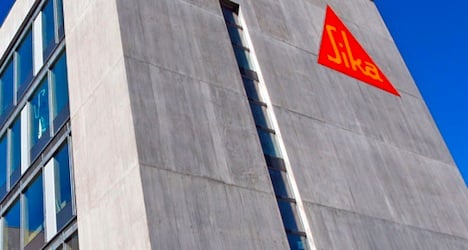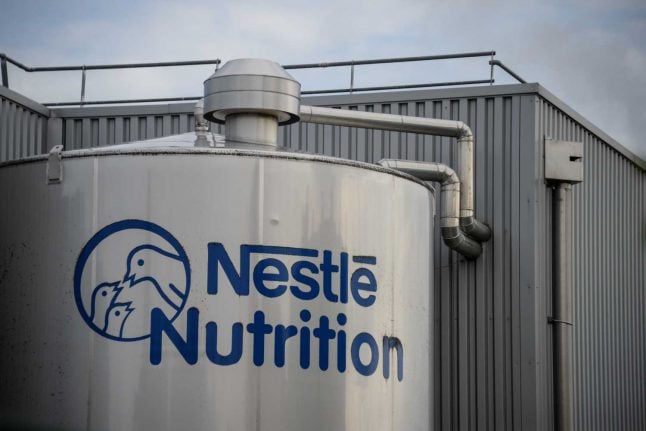Saint-Gobain shares sank 4.9 percent to 35.41 euros in late morning trade after it announced the takeover bid, as well as a plan to sell off its glass packaging unit Verallia, while Sika's nosedived 17.37 percent to 3,211 francs.
Saint-Gobain said the Burkard family, which owns a controlling stake in Sika, agreed to sell it for 2.75 billion francs (2.3 billion euros).
The sale through the Schenker Winkler holding company would account for only 16.1 percent of Sika's capital while giving Saint-Gobain 52.4 percent of voting rights in the firm.
Sika's board of directors bitterly opposes the plan, saying in a statement on Sunday it makes "no industrial sense".
They said they had not been informed of the move until Friday evening, adding that they would resign if the operation succeeds.
"The board neither sees the industrial logic in the transaction, nor significant synergies for Sika," the Swiss company said in a press release.
"Furthermore, the board and the group management believe that shareholder value would be impaired as Sika in the planned set-up would not be able to continue its successful growth strategy."
Saint-Gobain CEO Pierre-André de Chalendar said he was "extremely surprised" by the reaction, adding that the group had pledged to retain Sika's current management.
"At this stage I will not explain myself. There must be emotional aspects that I don't understand," he said, asserting that there had been "a reversal in attitude over the weekend that we learned of yesterday (Sunday)".
He added: "The family decided to sell its stake, and to do so it set in motion a process that was both competitive and confidential."
The operation would avoid having to issue an IPO, which would have jacked up the cost considerably.
Swiss law allows such transactions, which would not be possible in many other countries including France, but the deal would still need the green light of competition authorities.
Saint-Gobain, which employs nearly 193,000 people worldwide, had been pursuing the operation in the utmost secrecy, and hopes to complete it in the second half of next year.
Sika is based in Baar in the canton of Zug.
It employs 16,000 people and had a turnover of 5.1 billion francs (4.3 billion euros), last year.
De Chalendar said the merger would produce synergies worth 100 million euros from 2017 and 180 million euros from 2019.
As for Saint-Gobain's glass packaging unit Verallia, the group hopes to sell it off before next summer.
"We have received many inquiries and we think the time has come," de Chalendar said.



 Please whitelist us to continue reading.
Please whitelist us to continue reading.
Member comments